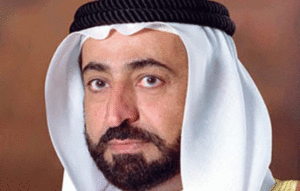The website for the First International Youth Poetry Conference, hosted by the China Writers Association (CWA) from July 18 to 24, features an in-depth study titled “Contemporary Emirati Literature: The Symphony of Tradition and Modernity.” This study was authored by Chinese researcher Yang Waning, a doctoral candidate at Beijing University’s School of Foreign Languages.
Yang Waning’s research delves into the experience of Nabati poetry in the UAE, highlighting the poetic debates between His Highness Sheikh Mohammed bin Rashid Al Maktoum, Vice-President and Prime Minister of the UAE and Ruler of Dubai, and the renowned Emirati poet Ousha bint Khalifa Al Suwaidi, also known as “Fatat Al Arab” (Girl of the Arabs).
The study explores the analysis of poems, the nature of poetic debates, and their significance in literary dialogues, presenting them as an authentic form of Arabic poetry.
The study also highlights the significant cultural renaissance witnessed by the UAE, tracing the historical development of the state from its Bedouin roots to a modern civilization. It underlines the UAE government’s role in supporting literature and writers, contributing to today’s cultural renaissance. The study also examines the various literary awards granted by the UAE, notably the Great Arab Minds Award, which is considered equivalent to the Nobel Prize.
The Chinese researcher also reviewed other prominent Emirati awards, including the Sharjah Award for Arab Creativity, the Sheikh Zayed Book Award, the Sultan Bin Ali Al Owais Cultural Award, and the International Prize for Arabic Fiction, among others. The study further explores Nabati poetry, emphasizing that the poetic heritage of the UAE has a long history, with its origins predating the advent of Islam.
Four Emirati poets are participating in the First International Youth Poetry Conference, which brings together 72 poets from ten BRICS countries gather in Hangzhou and Beijing to recite their poems and discuss issues of poetry and the aesthetics of literary expression.
The participating countries include the UAE, Saudi Arabia, Egypt, Brazil, Russia, India, South Africa, Iran, and Ethiopia, along with 23 Chinese poets. The Emirati participation was coordinated by Emirati poet Adel Khozam, who has previously won several poetry awards in China, including the title of the 2021 Best International Poet of the Year and the Silk Road Global News Award sponsored by the United Nations (UN).
Adel Khozam revealed that the festival celebrates the UAE in a special way by publishing an in-depth study by Chinese researcher Yang Wanning on the conference website and the China Writers Association of China.
Speaking about the Emirati participation in the festival, Khozam said: “Four young poets from the UAE were nominated for this important conference. They are Sheikha Al Mutairi, a PhD student in history and Islamic civilization with five poetry collections, and Amal Al Sahlawi, who holds a degree in Arabic Literature and has several literary publications. Other poets include Hassan Al Najjar, who holds a PhD in Arabic language and literature and published four poetry collections, and Fatima Badr, a distinctive poetic voice with two poetry collections.”
As part of their participation program, young Emirati poets will visit West Lake on the first day and attend the evening opening ceremony. The event features poetry recitations, performances, vocal music, dance, opera, and other art forms showcasing the history, culture, and poetic beauty of BRICS member countries.
The following day, they will visit the Zhejiang Literary Centre, where poets will donate manuscripts of their poems, engage in discussions on poetic innovation, and recite poems at various locations. They will also visit the Lianzhou Archaeological Museum. On the third day, they will travel to Beijing by high-speed train to recite their poems at the Great Wall of China.
They will also visit the Forbidden City, home to the Imperial Palace at the center of Beijing, which was the residence of 24 emperors of the Ming and Qing dynasties. The Imperial Palace served as the political center of China for over 500 years, from 1420 to 1924.




